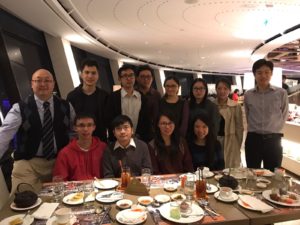Uniparental disomy (UPD) occurs when a person obtains both copies of the homologous chromosome from one parent. UPD can be associated with human diseases caused by disruption of genomic imprinting or homozygosity for a recessive trait. In this report, we describe the first human case of paternal UPD for chromosome 19 in monozygotic twins showing dysmorphic features and global developmental delay. Comprehensive genetics and DNA methylation analysis suggested that imprinting defects were considered a potentially important mechanism to explain the clinical features of the twins. However, reports of additional patients are necessary to further delineate the clinical spectrum of paternal UPD for chromosome 19 and to define a recognizable human syndrome. (By Kit San Yeung, https://jmg.bmj.com/content/early/2018/07/13/jmedgenet-2018-105328 )
Paternal uniparental disomy of chromosome 19 in a pair of monochorionic diamniotic twins with dysmorphic features and developmental delay
(Visited 715 times, 1 visits today)

